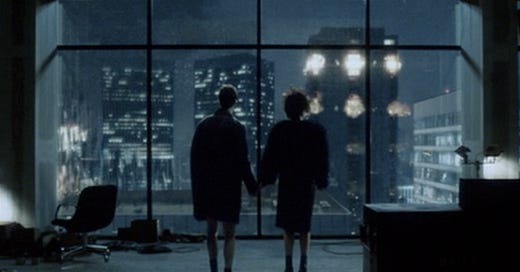This week, I told the Universe (and Instagram) I was done with New York. And New York, in her typical bitch counter, sent an ice storm; knocked out my power, internet and phone; impaled my car with a frozen tree. When the tow truck driver came to take my car, we sat and watched tree after frozen tree break apart on my property, like we were in that last seen of Fight Club.
I’ve been very hesitant about leaving New York because while getting the heck out of here feels right, the logical part of my mind keeps saying things like, but you should keep trying to make this thing you hate work. After making the firm decision to leave, before Zeus threw lightning bolts of actual ice at my home, I thought maybe I was being rash. A lot of people would be very pissed to find a pine tree growing out of their car the morning after they decide to leave a place and a few weeks before they have to pack up said car to move from said place, and I’m kind of one of them. But I’m more relieved that I was r…




